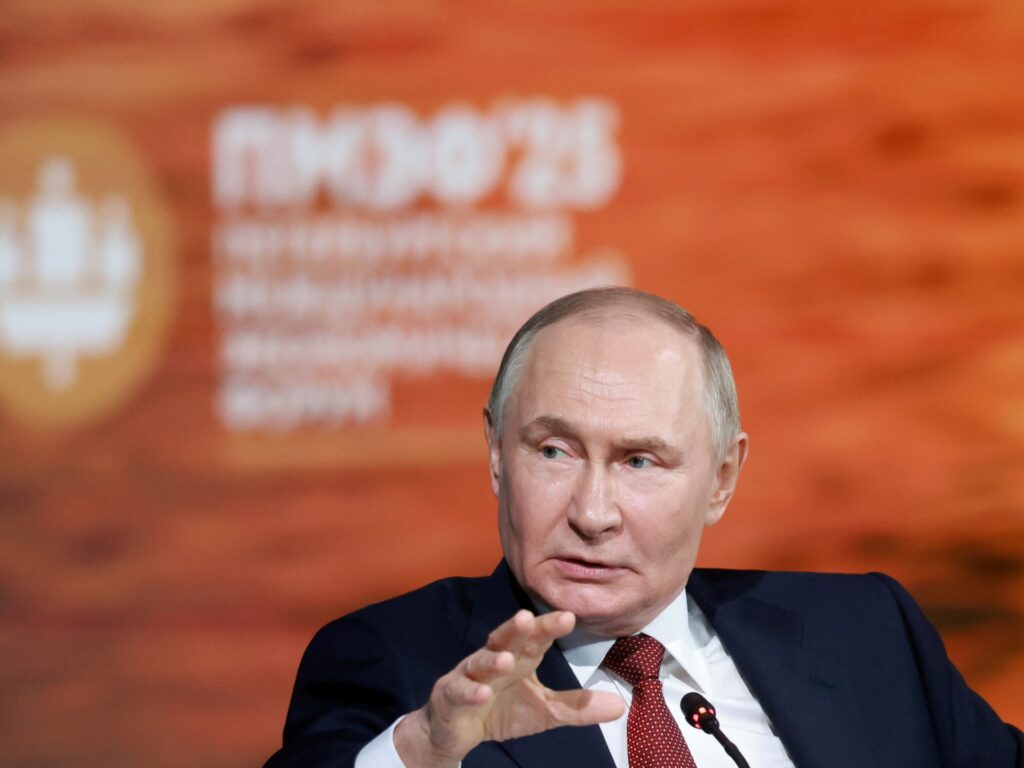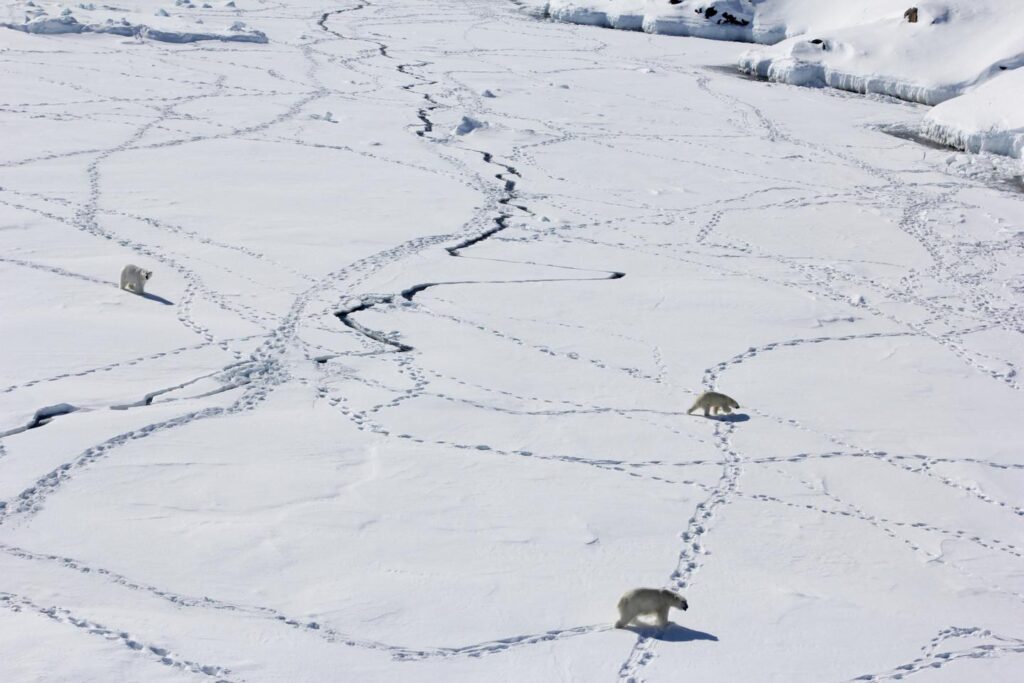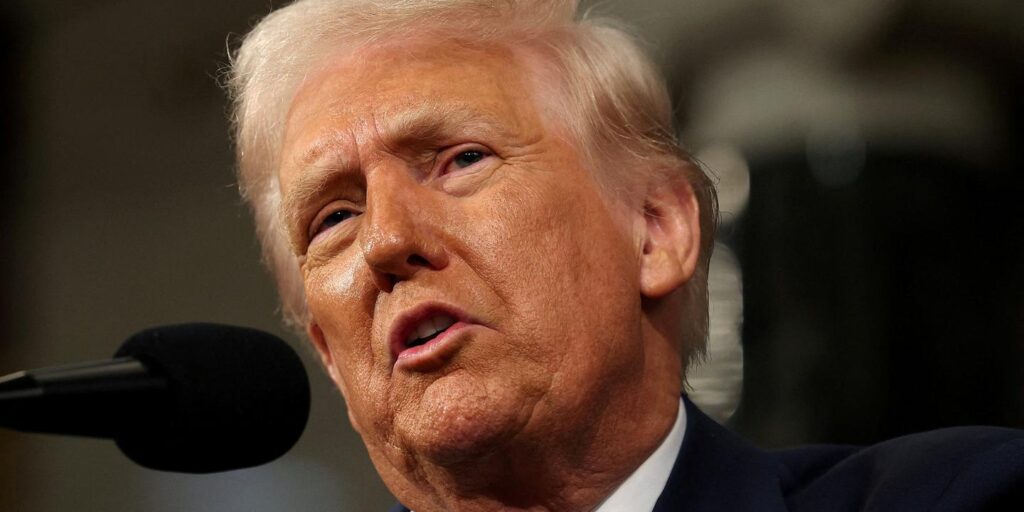Russia’s economy must not slide into recession, President Vladimir Putin said, after economists warned for months of a slowdown in growth.
Putin told attendees, including government ministers and central bankers, at the St Petersburg International Economic Forum on Friday that some specialists and experts were “pointing to the risks of stagnation and even a recession”.
“This must not be allowed to happen under any circumstances,” he said.
“We need to pursue a competent, well-thought-out budgetary, tax and monetary policy,” he added.
Economy Minister Maxim Reshetnikov said on Thursday that the economy was on the verge of slipping into a recession, and monetary policy decisions would determine whether it falls into one or not.
In October, the Bank of Russia increased its key interest rate to the highest level since the early 2000s to curb high inflation, only to cut it by one percentage point to 20 percent earlier this month.
Moreover, economists warned for months of a slowdown in the economy, with the country posting its slowest quarterly expansion in two years during the first quarter of 2025.
However, the Kremlin said it expected the slowdown due to two years of rapid expansion as it increased military expenditure to fund its war against Ukraine.
Yet, Putin denied that the defence industry was solely driving the economy. “Yes, of course, the defence industry played its part in this regard, but so did the financial and IT industries,” he said.
He added that the economy needed “balanced growth”, calling on officials to keep a “close eye on all indicators of the health of our industries, companies and even individual enterprises”.
At the same time, Deputy Prime Minister Alexander Novak said on Friday that it was time to “cut the (interest) rate and start heating up the economy”.
German Gref, CEO of Russia’s largest lender Sberbank SBER.MM also called for faster rate cuts to incentivise companies to invest.
Growth of military industries
Putin has used the annual economic forum to highlight Russia’s economic prowess and encourage foreign investment, but Western executives shunned it since Moscow sent troops into Ukraine in 2022, leaving it to business leaders from Asia, Africa and Latin America.
The economy, hit with a slew of Western sanctions, has so far outperformed predictions. High defence spending has propelled growth and kept unemployment low despite fuelling inflation.
Large recruiting bonuses for military enlistees and death benefits for those killed in Ukraine have also put more income into the country’s poorer regions. But over the long term, inflation and a lack of foreign investments pose threats to the economy.
Economists have warned of mounting pressure on the economy and the likelihood that it would stagnate due to a lack of investment in sectors other than the military.
Putin said the growth of military industries helped develop new technologies that have become available to the civilian sector.
He pledged to continue military modernisation, relying on lessons learned during the fighting in Ukraine.
“We will harness new technology to improve the combat capabilities of the Russian armed forces, modernise military infrastructure facilities, (and) equip them with the latest technology and weapons and equipment,” he said.
“At the same time, we intend to develop military-technical co-operation with friendly countries. And we are talking not only about supplies or the modernisation of equipment and weapons, but also about joint development, personnel training, and the creation of turn-key enterprises and production facilities,” he added.


